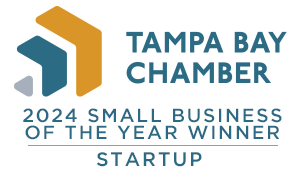Every business requires a well-executed financial plan, regardless of size. However, this can be a daunting task. The pressure to be precise while handling day-to-day operations, intricate financial data, uncertainty about changing market conditions, and the unwavering objective of growth and long-term sustainability can feel like a recipe for disaster. Add in work-life balance, and it just might be enough to send you over the edge.
The corporate budgeting process requires research, development, and implementation by the appropriate team. And, it’s only one piece of the business success puzzle for a business owner. You’ll find, though, that it’s an integral tool that will fast-track your business's financial success.
What is a Corporate Budget?
A fresh perspective on corporate budgeting tips and best practices will help you identify roadblocks you never knew existed or even considered before. And if the B word is too scary, just remember that it’s another word for plan. And we know that a plan is just a blueprint for success.
How? So glad you asked. It helps you set clear goals, strategic objectives, and the corresponding steps needed to achieve them. This tool not only enables you to determine the financial future of your business but also keeps you on track, focused, and accountable. It’s a tool that enables you to track and measure your progress against your expectations. Ultimately, it helps you adjust your performance and/or the plan.
Here’s the best news: despite what you call it, it’s not set in stone. (Or written in blood.) It’s fluid and can be modified as needed. That there, Clark, is called DYNAMIC.
Types of Budgets
Businesses use various budgets to estimate and track revenue, expenses, and profit. Some are more common than others and are dependent on individual needs.
Operational Budget:
An operating budget is a combination of a business's projected revenue and expenses over a period of time, like a fiscal year. Operational costs can be broken down into two different scenarios: fixed and variable budgets.
Fixed costs refer to items that stay stagnant month-to-month and are, for the most part, predictable:
- Rent
- Utilities
- Insurance
- Loans
Variable costs are directly related to the production and sales of goods. Therefore, they change as performance shifts:
- Raw materials that are necessary to manufacture a product
- Packaging
- Delivery
- Costs of goods sold (COGS)
- Credit card fees
Other budgets that companies may utilize for future success are:
- Strategic plan budget
- Cash-flow budget
- Master budget
- Labor budget
- Capital budget
- Financial budget
Does Size Matter?
Not really. Budgets are essential for all businesses, from your kid’s lemonade stand to large corporations. And guess what? Some of the challenges are the same for a two-year-old company running $50 million in revenue or a 15-year-old company running $300 million in revenue. But, in any case, building a scalable, sustainable footprint to correctly support your organization is paramount to overall success.
Benefits of a Corporate Budget Process
Your business needs a practice of intelligent financials and budgets based on metric modeling and continuous performance tracking so you can make informed decisions about your financial and operational management. With the proper budget, sustainable growth is possible.
Successful Management of Money
A corporate budget with a corresponding cash forecast enables your business to manage cash flow more efficiently. This can make or break your business, plus it gives you a cushion so you remain agile. You remember cash flow, right? Cash in versus cash out?
My personal favorite is cash overflow. But that needs to be closely managed as well.
Planning for the Future
Budgets allow you to accomplish long-term success. Track goals. And make necessary modifications. Please, talk nerdy to me.
Attracting Investors
A potential investor in your business needs to determine your current financial health and whether your business is viable for long-term success. It paints the picture.
Tools for Successful Corporate Budget Performance
Implementing the Right Software
Software?! Yes, software. We’re not using ink and quill these days. Software implementation is critical for accurate planning, budgeting, and forecasting. Bye-bye, Excel. Hello, predictive analytics.
While accounting software is helpful, a business budget program is even more efficient. Especially when a tailored Enterprise Resource Planning (ERP) system integrates all aspects of your business operations and relevant data.
Optimizing Your Cash Flow
A comprehensive suite of financial strategies will optimize your company's cash flow. Picture it: meticulous conversion cycle optimization, expert contract renegotiations, strategic debt management, and targeted cost reduction initiatives. All together, creating efficiencies, enhancing profitability, and ensuring funds are available when needed.
No need for FOMO. You’ve got the DOUGH-MO.
The Right Team
Remember. This is not a one-person job. It’s a collaborative team effort, marrying extensive experience, industry knowledge, and strategic insights.
Do You Need a Chief Financial Officer?
Maybe. There has been a big shift in the market over the years. Gone are the stereotypical CFOs, sitting in a dark room, talking to the street. Today, the role isn’t just a finance expert. It’s a strategic partner who understands the entire business and collaborates with other key leaders to expose valuable insights to fortify the business, operationalizing the CEO’s vision and perpetuating the organization’s mission.
Say it with me: it’s not just numbers, people. It’s also strategic, collaborative partners.
Like other professionals today, CFOs are behaving differently than in the past. They are occupying their positions for shorter periods and switching jobs at an unprecedented rate. CFOs are needed to increase market share, drive profitability, and improve enterprise value. But do they need to be permanent full-time employees? Maybe not.
What is a Fractional CFO?
A Fractional CFO partners with you on a part-time or project-oriented basis to eliminate the roadblocks stifling your enterprise's success. They should position your company to unlock its next level of success.
Growing quickly but don’t have an appetite (or budget!!) for a permanent, full-time CFO? A Fractional CFO might be right for you. It will give you the financial services you require at a fraction (fraction(al)) of the price, complete with a plan tailored to your business’s unique needs.
Technology has also heavily reshaped the CFO position. Contributing to the rise of Fractional CFOs who divide their time among several companies, writes Global Finance.
Benefits of a Fractional CFO
A Fractional CFO should optimize your business, bringing tremendous advantages and cost savings to the table. We all know the proof is in the performance!!
Decreasing Internal Costs
It's indisputable that hiring full-time senior finance professionals requires significant resources. As of 2024, the average Chief Financial Officer salary in the United States is $439,956, with the employer burden typically running between $333,285 and $564,439. That education and extensive experience don’t come cheap.
Decreasing Internal Stress
Most entrepreneurs wear all the hats trying to keep up with their business’s demands, handling immediate fires and obstacles, with financial planning and strategy often falling by the wayside.
Increasing Financial Health
A Fractional CFO can help, spearheading many aspects of your business:
- Direct Tax and Audit Engagements
- Lead ERP Implementations
- Optimize Your Cash Position
- Transform Numbers Into Insight
- Execute M&A Strategy and Lead Integrations to enable scale
- Manage Turnarounds & Crises
- Formalizing Your Vision & Strategic Planning
- Financial Expert Coaching
Find the Right Fractional CFO for Your Business
Partnering with The William Stanley CFO Group provides the cost-effective financial solutions your business needs to succeed in today's competitive landscape. We’d love to discuss your financial strategy. And roadmaps. And implementation needs. All with deeper analysis to fast-track your business's success.
Want a strategic partner who champions your mission and works tirelessly to operationalize your vision? Contact us today.




